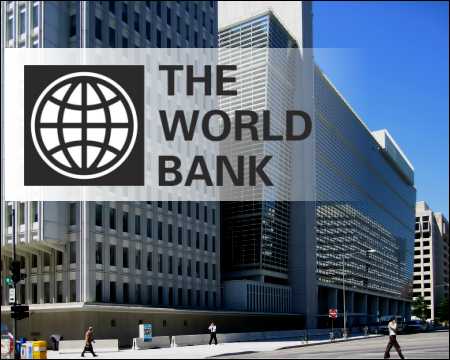The World Bank Group has blacklisted 58 Nigerian companies and individuals for allegedly engaging in corrupt practices as part of its sustained efforts to uphold integrity and transparency in its projects and operations across the global geo-political zones
The blacklisted firms and individuals comprised 39 Nigerian corporates previously debarred by the African Development Bank (AfDB) and 19 individuals identified by the development finance institution under its cross-debarment policy.
According to the World Bank report, the total number of debarred firms now stands at 58, rendering the implicated entities ineligible to participate in projects and operations financed by institutions of the World Bank Group.
The list contains a total of 1,210 companies and individuals globally and it is updated every three hours by the bank.
By implication, a debarment renders firms/individuals ineligible to participate in projects and operations financed by institutions of the World Bank Group
Sanctions were imposed on the affected entities and individuals following an administrative process conducted by the Washington D.C-based multilateral finance institution, which allowed the accused firms and individuals to respond to the allegations.
This process adhered to the Bank’s procedures for sanctions proceedings and settlements in bank-financed projects.
The report stated: “Through July 2007, this process was conducted in accordance with the Sanctions Committee Procedures adopted on August 2, 2001. The process is currently conducted in accordance with Bank Procedure: Sanctions Proceedings and Settlements in Bank Financed Projects. For more information on the two-tier sanctions process go to Sanctions.”
Cross-debarment, as per the Agreement for Mutual Enforcement of Debarment Decisions, was enforced in accordance with the agreement dated 9 April 2010.
This agreement has been made effective by several international financial institutions, including the World Bank, Asian Development Bank, European Bank for Reconstruction and Development, Inter-American Development Bank, and African Development Bank.
Cross-debarment in accordance with the Agreement for Mutual Enforcement of Debarment Decisions dated 9 April 2010, which, as of July 1, 2011, has been made effective by the World Bank, Asian Development Bank, European Bank for Reconstruction and Development, Inter-American Development Bank, and African Development Bank.”
In addition to debarment, the Breton Woods institution reserves the right to apply other actions to firms and individuals found in violation of its policies, which may not necessarily result in debarment.
The prohibited conduct leading to debarment is defined in the applicable Procurement or Consultant Guidelines, as well as in the World Bank Procurement Regulations for Investment Project Financing Borrowers. The specific guidelines may vary depending on the nature of the project in question.
The World Bank’s actions underscored its commitment to combating corruption and promoting accountability in development projects, ensuring that funds are used effectively for the benefit of the people






